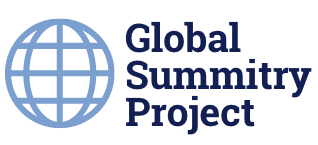The world is witnessing an extraordinary technological, economic, social, environmental, and political transformation. Market integration and social change have proceeded at a rapid pace, which has stretched the institutions and power networks that underpin our global economic system to the limit. New powers have risen, with about 20% of global GDP shifting toward emerging economies since 1990. As noted by the IMF’s Christine Lagarde on March 20, 2016, emerging and developing economies have generated 80% of world growth since the 2008 global financial crisis. Dealing with global public goods, systemic risks such as climate change, and global institutional resilience now primarily depends on quality cooperation between established and emerging powers. Yet, rising Nationalism poses new challenges to multilateral alliances and institutions.
The G20 (with its affiliated networks) is currently uniquely situated with the mandate and ability to reform global institutions and host win-win coordination between key established and emerging powers. Yet, after significant initial results in 2008-2011, the G20 has increasingly focused on small technical improvements, rather than bigger global public goods questions. Inter-governmental meetings at ministerial or sherpa levels often lead to short-term tactical negotiations under tight domestic constraints.
The goal of the Vision 20 meeting and network is to bring together scholars from various fields with think tank leaders, civil society and private sector leaders, and government leaders with the hope of generating ideas and actionable items for the long and medium term, while finding ways to initiate such processes in the short-term. What are major global risks for the international system at the horizon of 2025? How can the G20 help deliver concrete outcomes on key global priorities, such reinvigorating multilateralism to address challenges, such as as climate change, sustainable development, and reduced financial risks? How can we ensure improvement and resilience in the institutions that undergird the global economy? What are entrepreneurial ways to initiate positive change toward improved global governance and increase the inclusiveness and legitimacy of global governance systems? How can we ensure successful cooperation between emerging and established powers over global public goods, despite domestic tendencies to focus on the ongoing power transition and internal social priorities?
Building on the success of the Vision 20 inaugural event in Hangzhou in March-April 2016 and the Blue Paper based on it issued last July, we are organizing this workshop bringing together policy makers, policy advisers, and global governance scholars with the aim of examining the following issues and coming up with specific proposals for action on them:
(1) Political Leadership: The G20 in the New Global Context
(2) Government-Business-Society Mutual Responsibilities for Better Social Outcomes in the Globalized Economy
(3) The Sustainable Infrastructure Imperative: What next?
This Vision 20 workshop is based on a collaborative effort by the Brookings Institution, the University of British Columbia, the Munk School at the University of Toronto, the Heinrich Boell Foundation and the Friedrich-Ebert Stiftung. Based on this workshop, this core group plans to issue another V20 Blue Paper with actionable ideas for the German G20 presidency and develop a network to generate collective ideas over time.
